The 2024 report on the most important statistics outlining the current digital framework was recently released. The figures gathered come from a multitude of sources and have been centralized by Meltwater into a very complex presentation. So, to simplify the understanding of this data, we have summarized the most important data that can be useful to marketers in planning their strategy for this year.
General data.
Around 70% of the global population owns a mobile phone, while more than 66% of the global population use the internet and 62% have social media accounts (up 5.6 percent from last year). So we really live in an age of digitization.
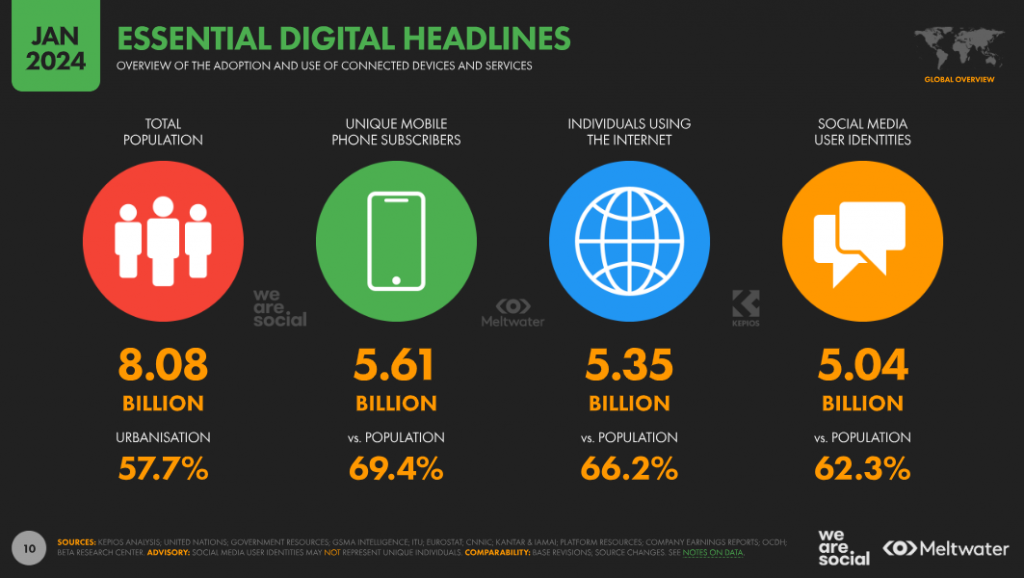
Devices used.
The most used devices remain mobile phones. 97.6% of internet users between the ages of 16 and 64 use a smartphone, 57.7% use a laptop or computer, 30.9% a tablet and 30.1% a smart watch or bracelet. The use of mobile phones increased compared to last year, while the use of computers and tablets decreased, which shows us that user preferences are increasingly moving towards small devices. Further confirmation that mobile optimization is crucial.

Media used.
How many of the Internet users use mobile phones? Well, an impressive 98%. A little over 93% use social media, but here we notice a subtle downward trend, of 0.3 percent, which can be considered insignificant, but it can indicate a trend. We will follow this statistic in the future to see if social media will gradually lose its popularity. If you are curious to know more about this topic, you can read our article about young people who choose to use dumb-phones to limit their time spent on social media as much as possible.
In a nutshell, media channels such as television, print media, radio, and music/podcasts streaming platforms and are still used by the majority of Internet users, but their popularity is declining compared to last year.
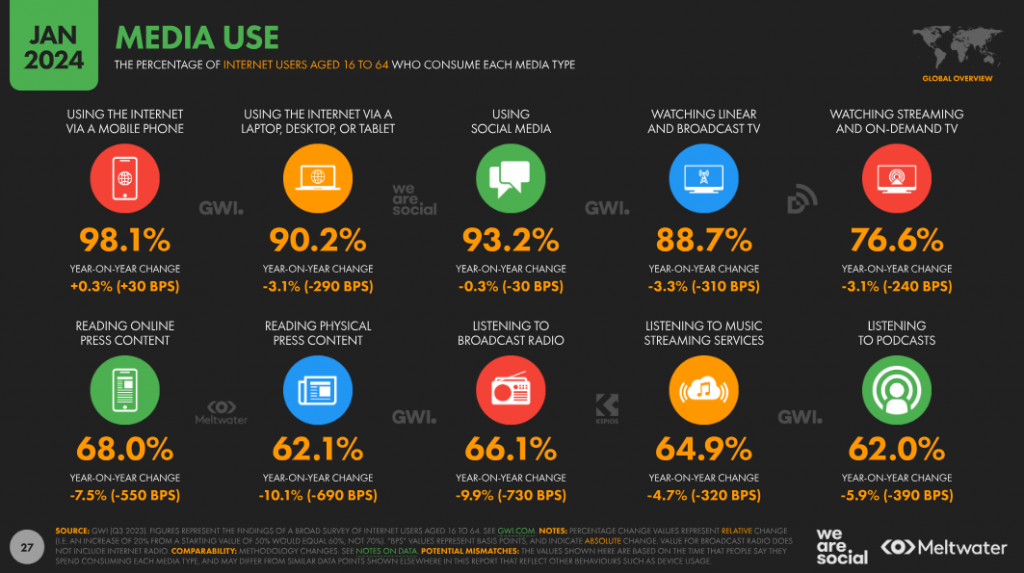
Time spent using media.
The average time a person spends on the Internet daily is 6 hours and 40 minutes. Of these, almost 2 and a half hours are spent on social media. But even here the time is decreasing, being 8 minutes less than last year, from which we deduce that social media is losing ground in users’ consumption preferences.
Users spend, on average, less time using other common media channels as well. The time spent reading the press online or physically decreased substantially compared to last year, being less than half an hour, but neither streaming music or podcasts, nor gaming on the console are doing any better in this regard.
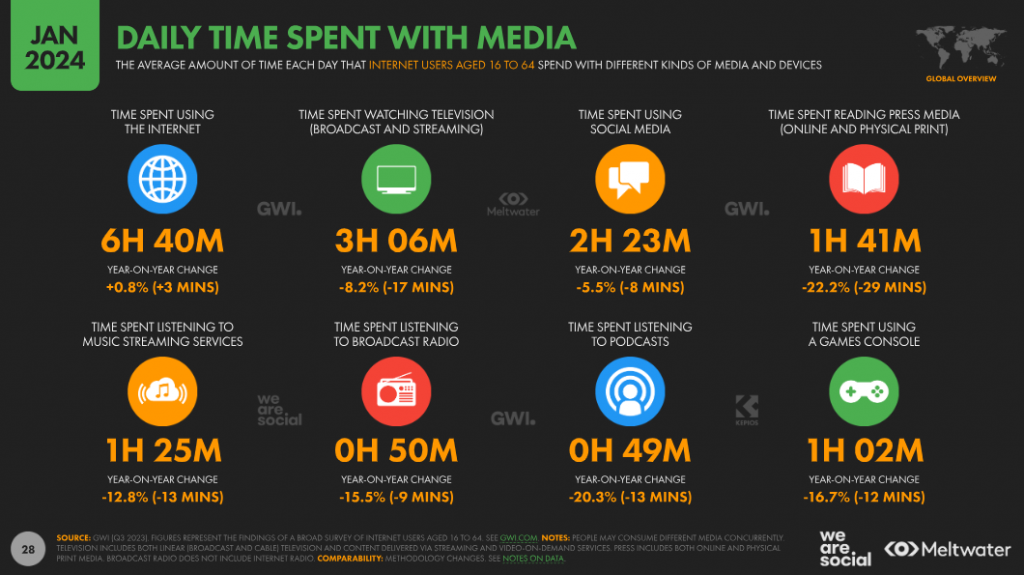
Use of the internet.
The number of Internet users increased by 97 million compared to last year. We have now reached 5.35 billion unique internet users. In terms of gender, globally, there are more internet users among men than among women. In terms of location, in urban areas 78.8% of the population use the Internet, and in rural areas only 48.9%.
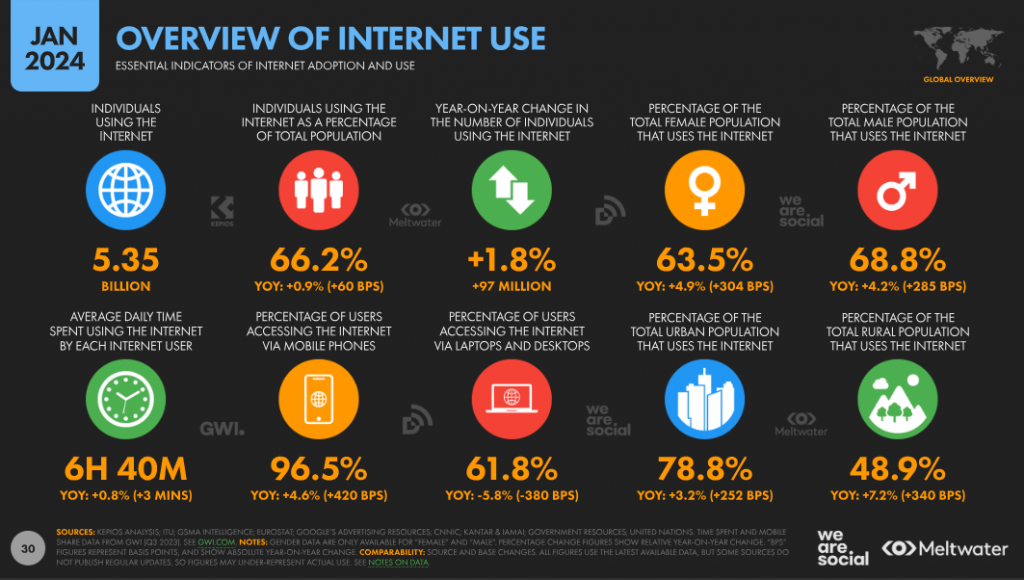
In terms of the reasons for accessing the Internet, finding information is primary. Users also use the internet to stay connected with their loved ones and watch content online. Gaming is at the bottom of the main reasons for accessing the Internet.
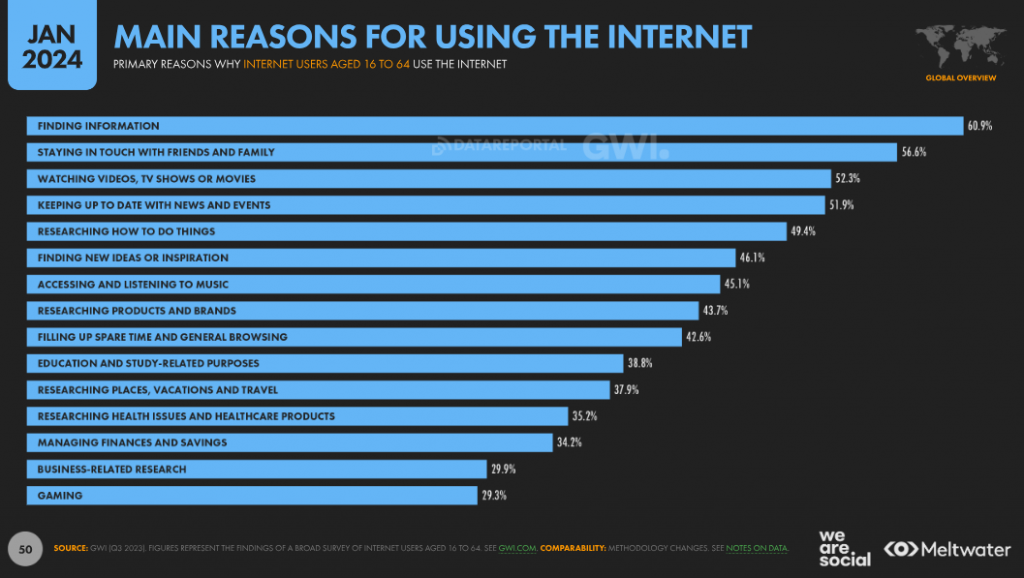
Social media.
There are 5 billion social media user identities around the world, which is 62% of the total population.
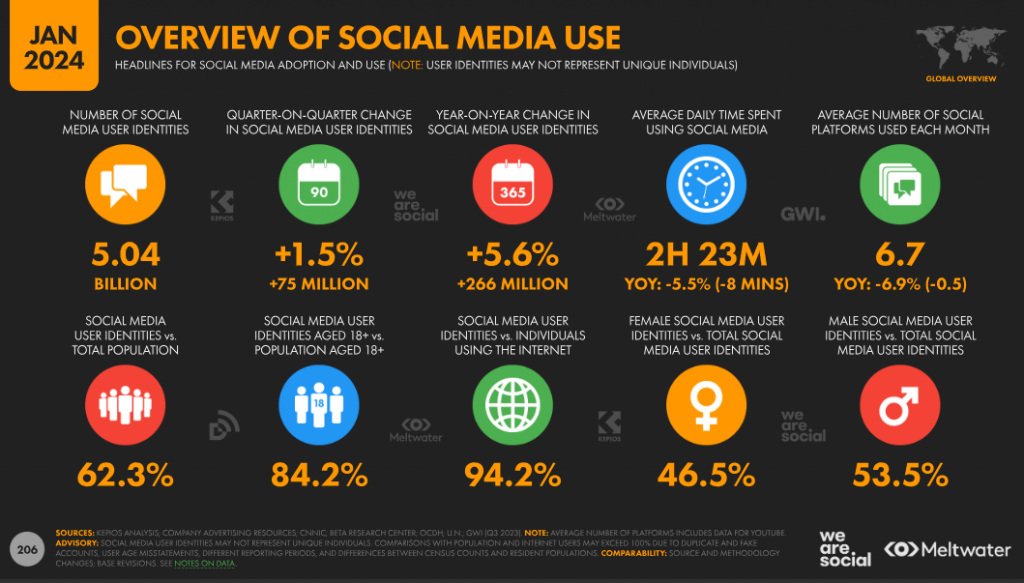
Young people between the ages of 16 and 24 spend the most time on social media, i.e. between 2 and a half to three hours a day. At the opposite pole, people over 55 spend about an hour less.
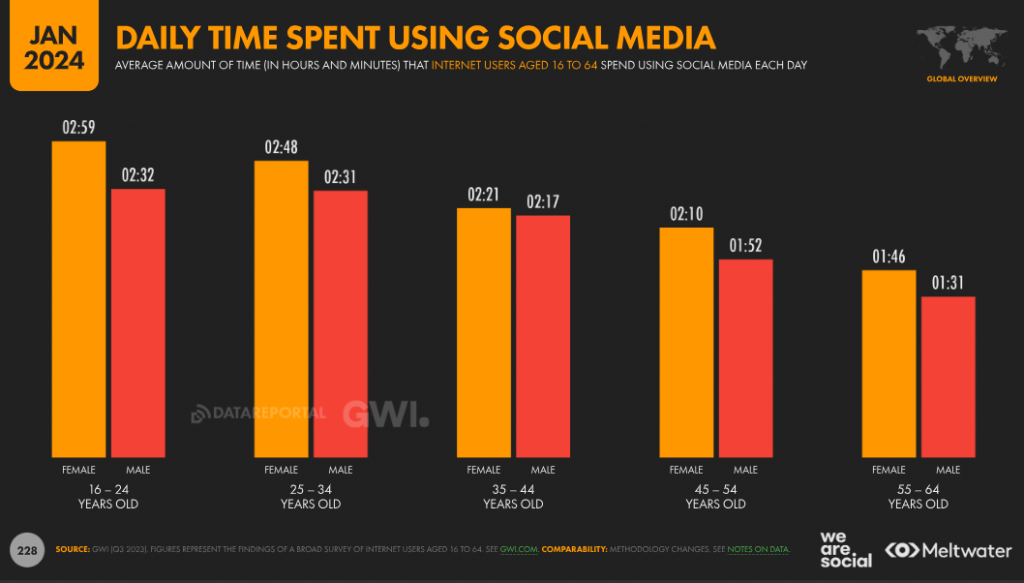
The most used social media platform globally is Facebook, followed by Youtube, Whatsapp, Instagram and TikTok.

But when asked what their favorite social media platform is, most users chose Instagram.
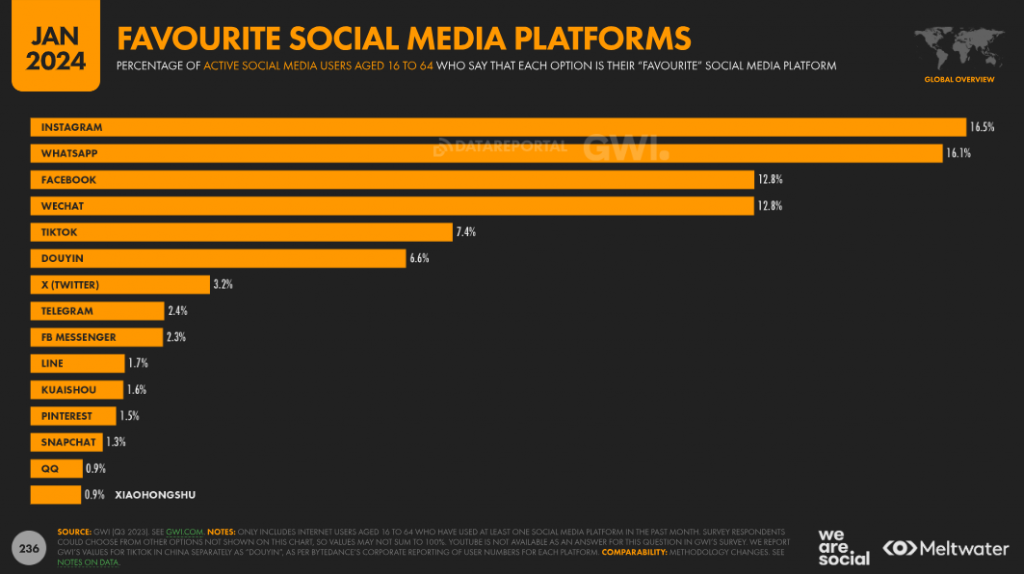
The surprise is that when we talk about the time spent on a social media app per month, neither Instagram nor Facebook are at the top of the rankings. TikTok is the app that users spend the most time on, with 34 hours per month. Youtube follows with 28 hours and Facebook with almost 20 hours.
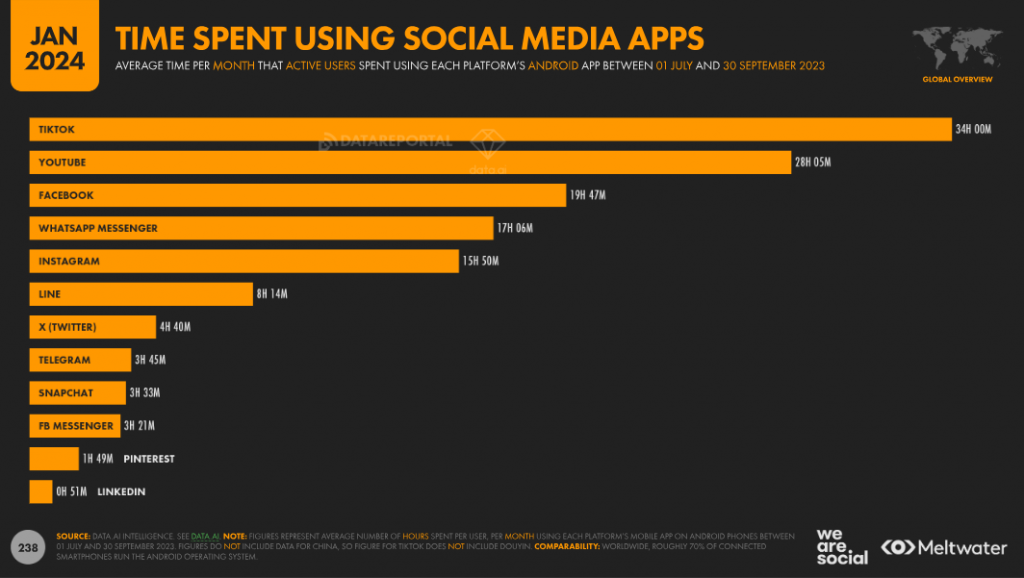
The most open app is Whatsapp. The average number of opens of this app is 930 per month. This is easy to understand because Whatsapp is an app dedicated to message-type conversations, and during the waiting time for a response users tend to leave the app.
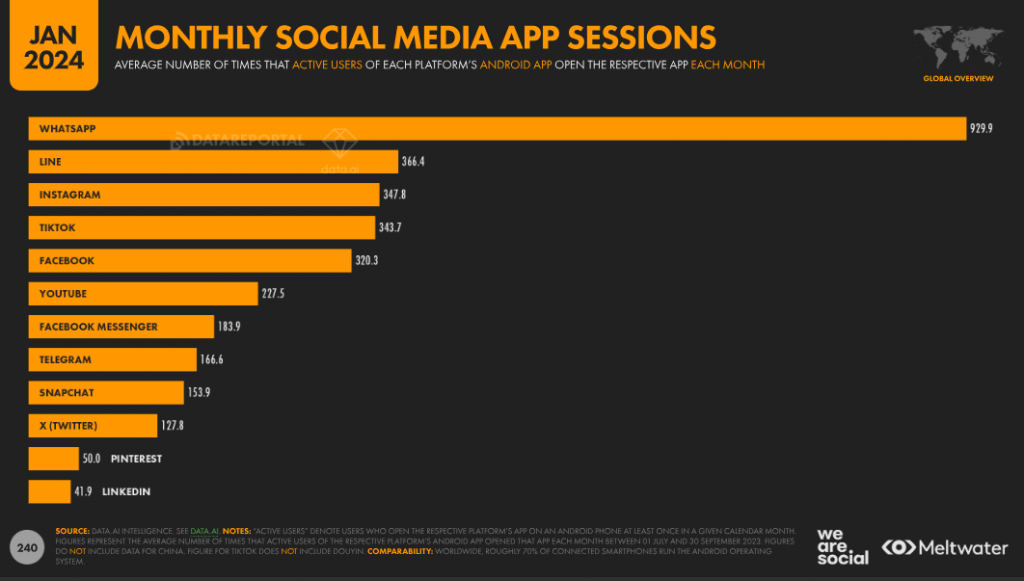
What are people looking for on each social media platform? Facebook is mainly used to communicate with family and friends. Instagram and Snapchat are used to share photos and video, obviously. TikTok and Reddit are primarily about consuming funny and entertaining content. X (ex Twitter) is preferred for keeping up with news and current events, and Pinterest is where users research brands and products.
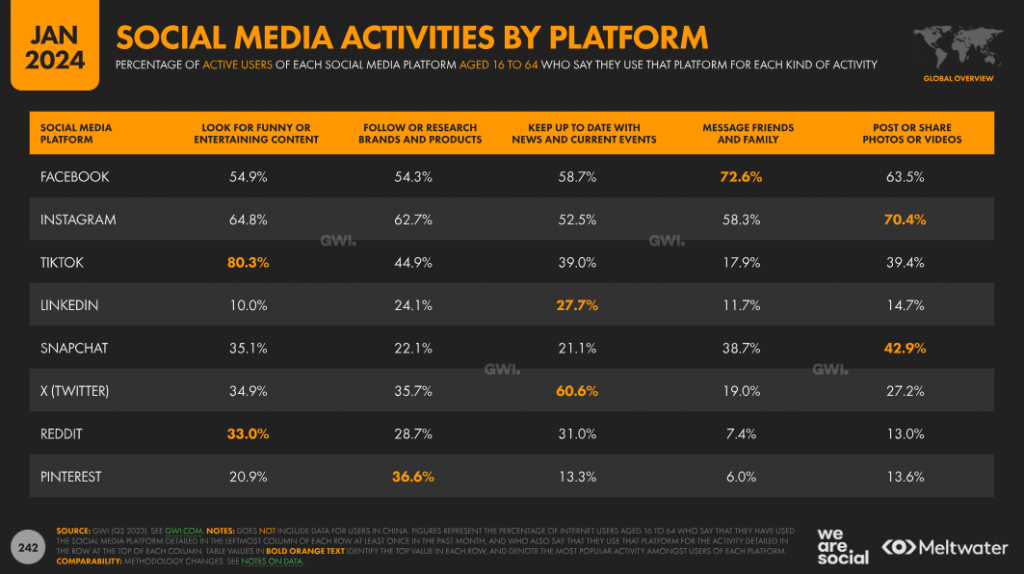
eCommerce.
More than half of internet users between the ages of 16 and 64 buy a product online every week.
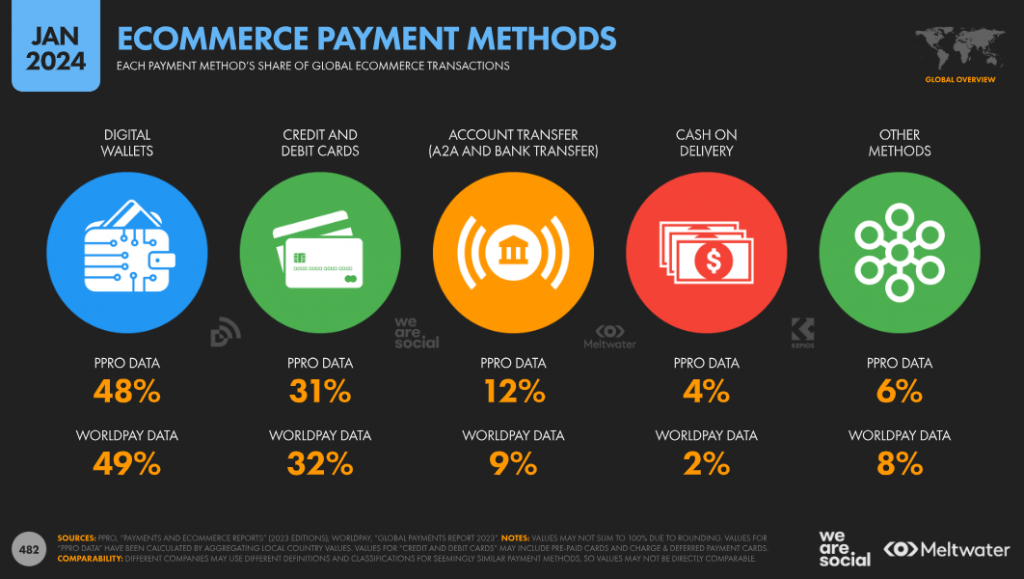
What are the deciding factors for an online shopper? First of all, free shipping, for which more than half of consumers are motivated to shop online. Discounts and a simple return policy are also strong motivations, followed by a simple check-out process, reviews and fast delivery. These are important things to remember for eCommerce businesses.
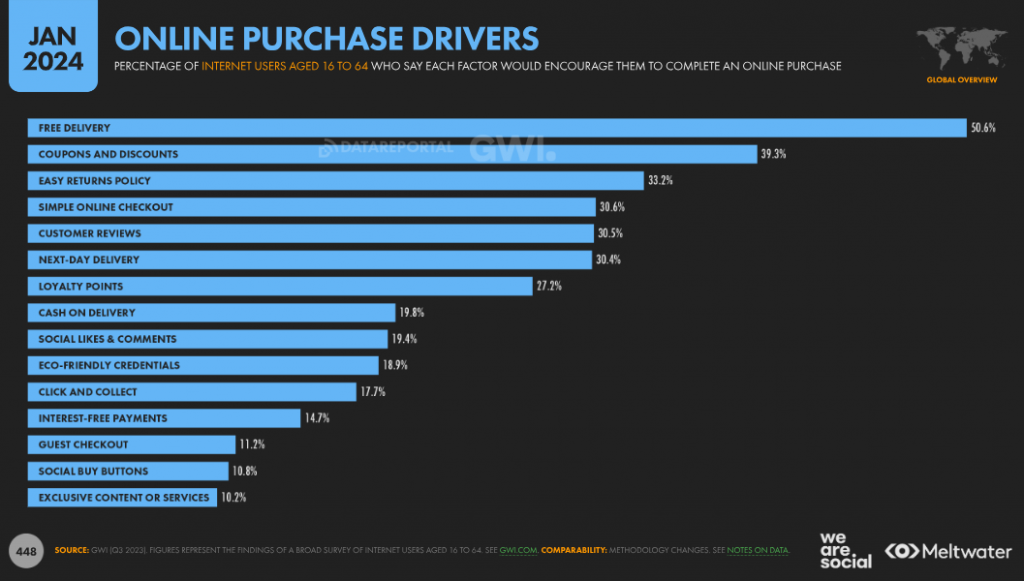
Where does most money go from online shopping? Primarily to electronics and fashion, with estimated amounts of over 13 billion dollars annually in total. Food and drinks also top the list of annual expenses, followed by DIY and hardware.
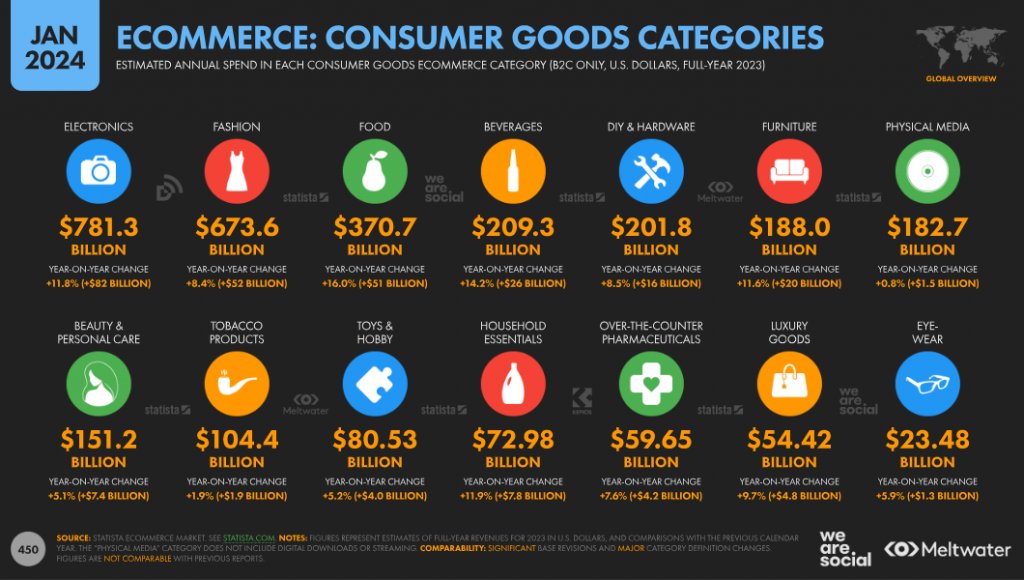
For online shopping, consumers most often choose to pay in the most simplified way, with 48% of them paying for purchases from their digital wallet, and 31% opting to pay with a credit or debit card. Only 4% of buyers pay cash on delivery.
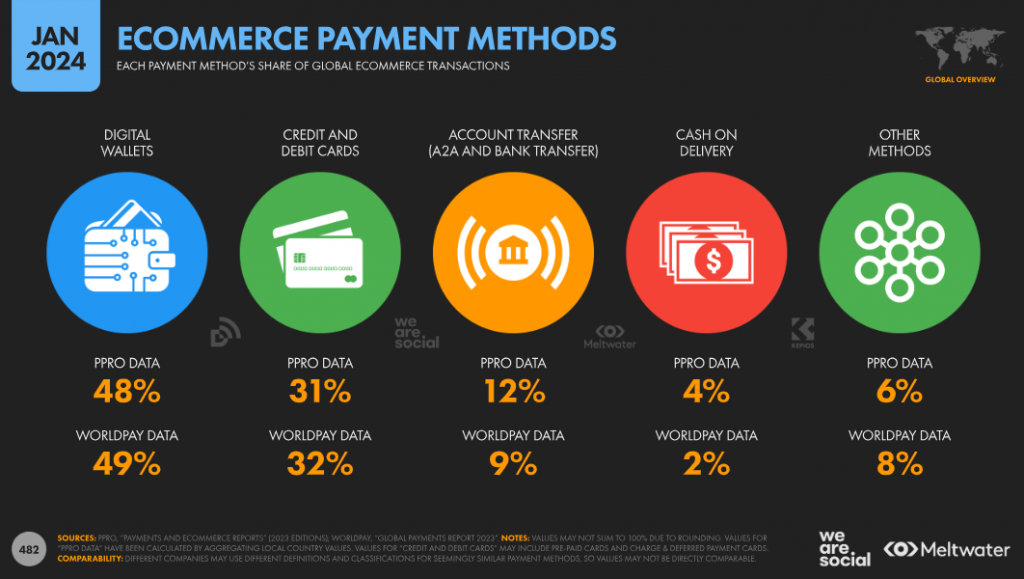
Digital Marketing.
Most people discover brands using search engines, but also from advertisements on TV or social media. Only 25% of Internet users learn about a new brand directly from its website.
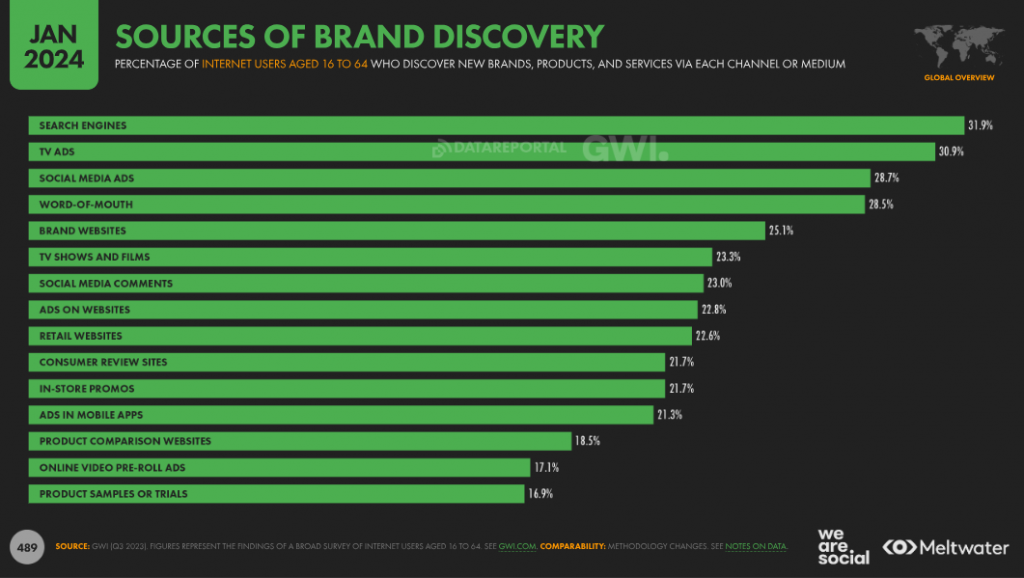
Conclusion.
2024 will be a digital year. We are curious to see how social networks will evolve this year and whether they will lose more and more users. Also, based on these statistics, we can build marketing and web development strategies that match the demands and preferences of consumers, meeting their needs in time. And bottom line, mobile optimization remains the golden rule.
You can see the full report on www.meltwater.com.
If you need a marketing team to help you update your strategy, leave us a message.


